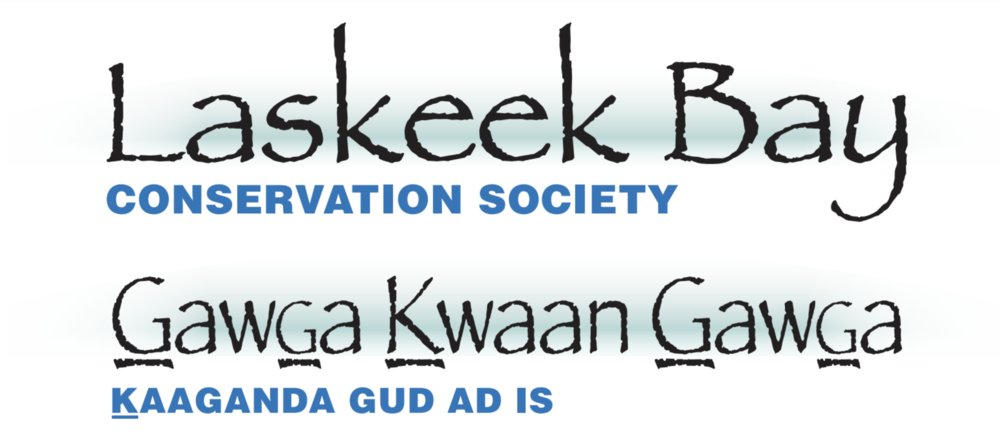This past year, we received SO much support from our local community in advance of the World Seabird Conference. Now that Viv and Keith are back and our field season is just around the corner, we wanted to take a minute to say THANK YOU to everyone who has helped us out along the way. This night promises to be full of interesting speakers and stories - we hope you'll join!
New year, new field season - and we need volunteers!
Happy New Year! At the LBCS office in Queen Charlotte, we're excitedly working away on plans for our 27th field season on East Limestone Island. Vivian Pattison will be returning for another year as our Lead Biologist and Field Camp Supervisor, and we're currently in the process of recruiting an Assistant Biologist and a team of interns (applications due Feb 12). And of course, we're also looking for volunteers to join us!
Volunteers at East Limestone Island have the unique opportunity to immerse themselves fully in our field research and monitoring work. Depending on the week you choose, you may find yourself capturing and weighing Ancient Murrelet chicks, embarking on a sea survey or monitoring local song bird populations. As a volunteer, you will be trained by our resident biologists on various activities, before participating directly in them. It is an amazing opportunity to work at a remote research station in a pristine wilderness environment! Best of all? You don't need any experience to become one of our "citizen scientists"!
Interested? There is loads more information on our volunteering page, and you can check out weekly availability and activities on the 2016 field season schedule page. We do ask for a donation to help offset the costs associated with hosting volunteers, but this donation is tax deductible!
Final Notes on the World Seabird Conference
Keith and Viv have now wrapped up their time at the World Seabird Conference, and have been busily telling us about the connections made and ideas gained. With over 600 scientists, biologists, students, community activitists and representatives from environmental organizations spanning 52 countries, it was 3 rich days of learning and exchange. Keith's talk and Viv's poster on citizen science were both extremely well received, and we've been making plans for the 2016 field season based on what was learned.
“I learned a lot that we will be able to incorporate into planning for the future of LBCS, and I met so many people. It is important that the society continues to undertake relevant and important research, and with the new knowledge gained and new connections that we made I will be able to continue to help LBCS do this in the future.”
Presentations at the conference show that many of the seabird species in the world - the penguins, the albatrosses, the petrels, the terns and others - are in great trouble. They are impacted by global climate change, disappearing sea ice, warming ocean temperatures, diminished fish stocks, conflicts with fisheries and especially the impacts of introduced predators. Fortunately, much is now being done to find ways to address some of these threats and to improve and restore seabird colonies, especially through programs that connect scientists, local community activists and NGOs.
“What we are doing is very much in line with what is starting to happen with seabird conservation in many other parts of the world. Even at Limestone Island, and here on Haida Gwaii, we see some of the same impacts. Over the years, LBCS, in our small way, has pioneered an approach that is now being developed globally. It was very rewarding to see that we are part of a global network of people getting local communities more involved in the global environmental issues.”
A few resources from the conference that might be of interest...
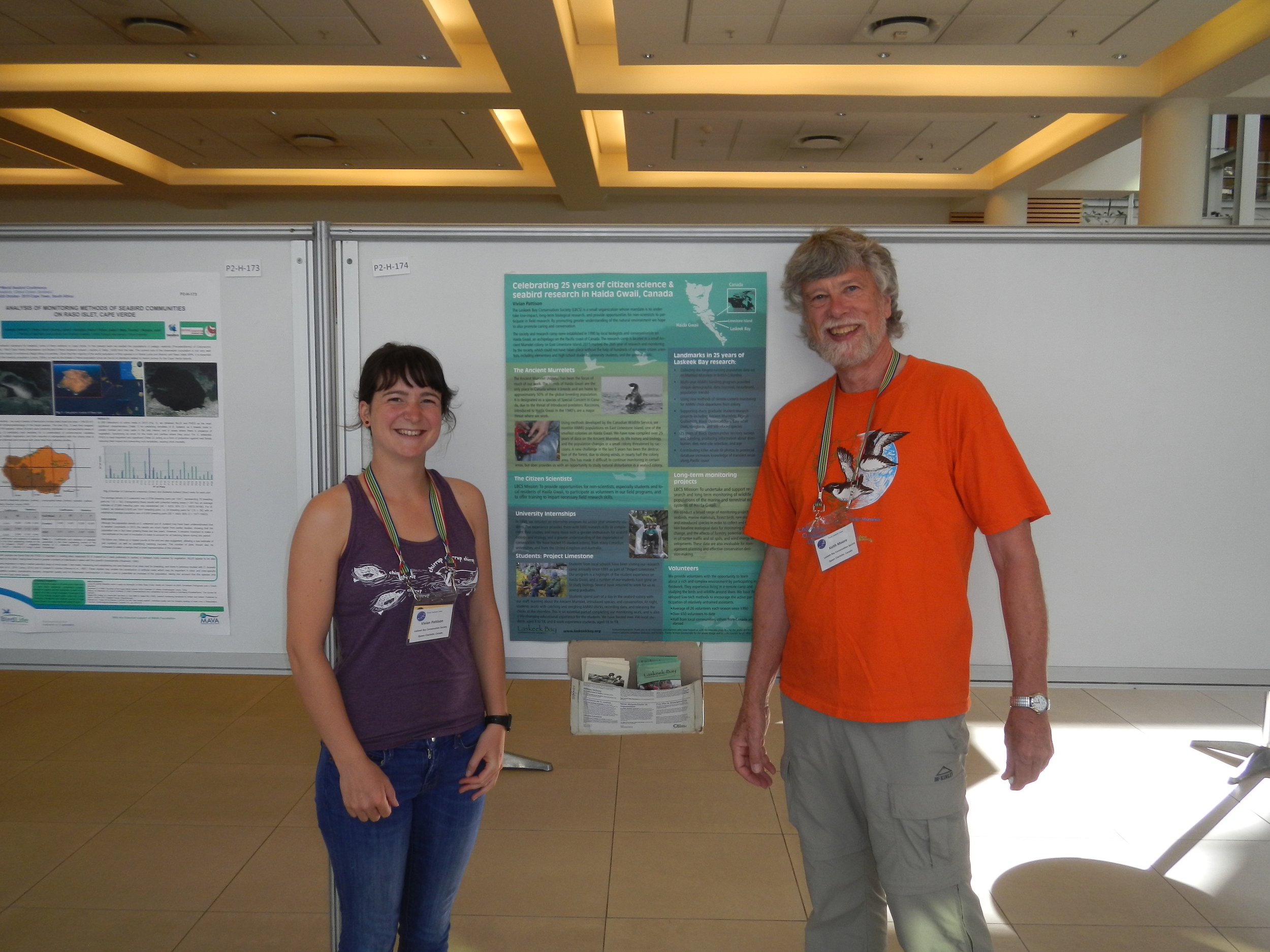
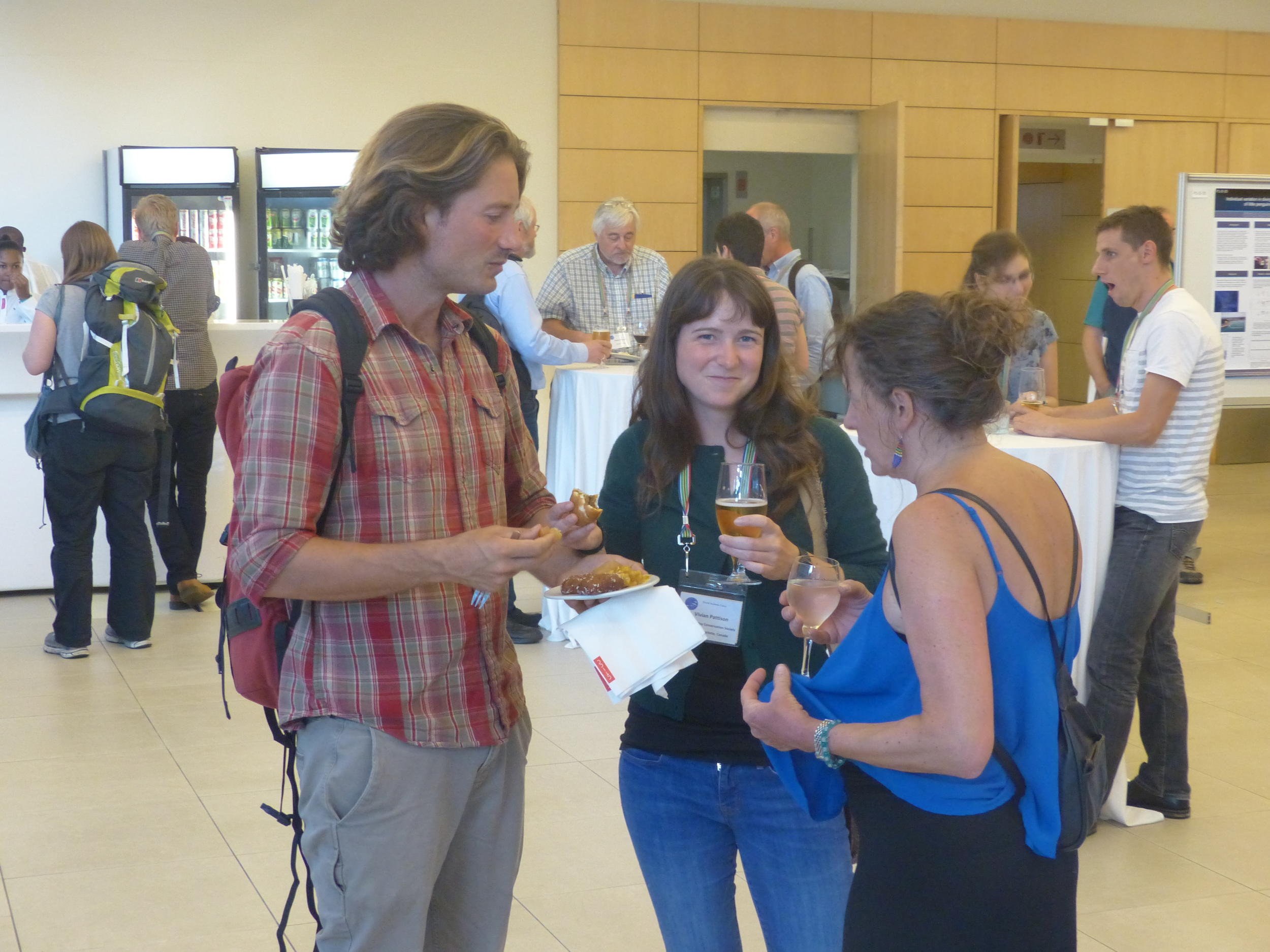
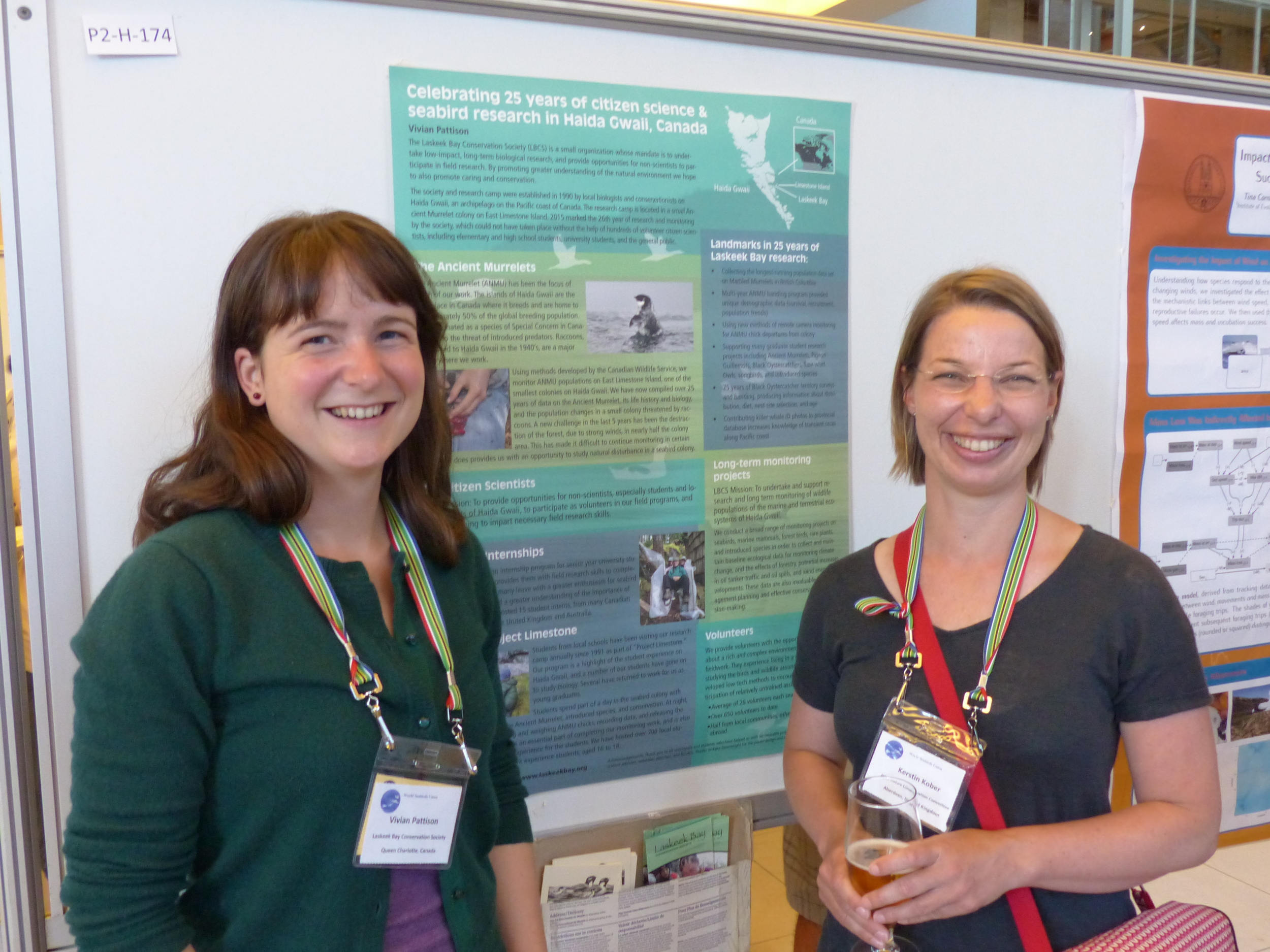
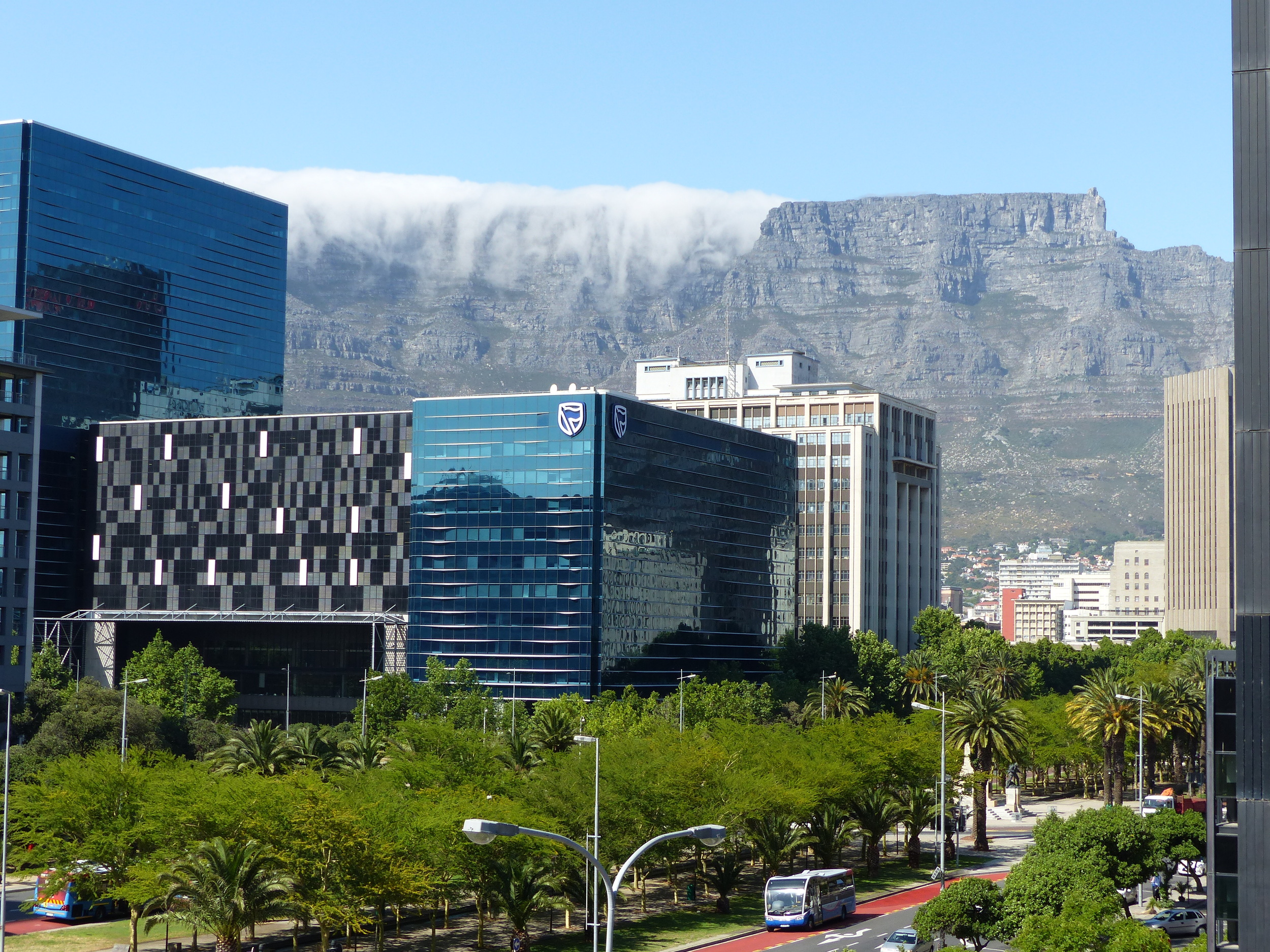
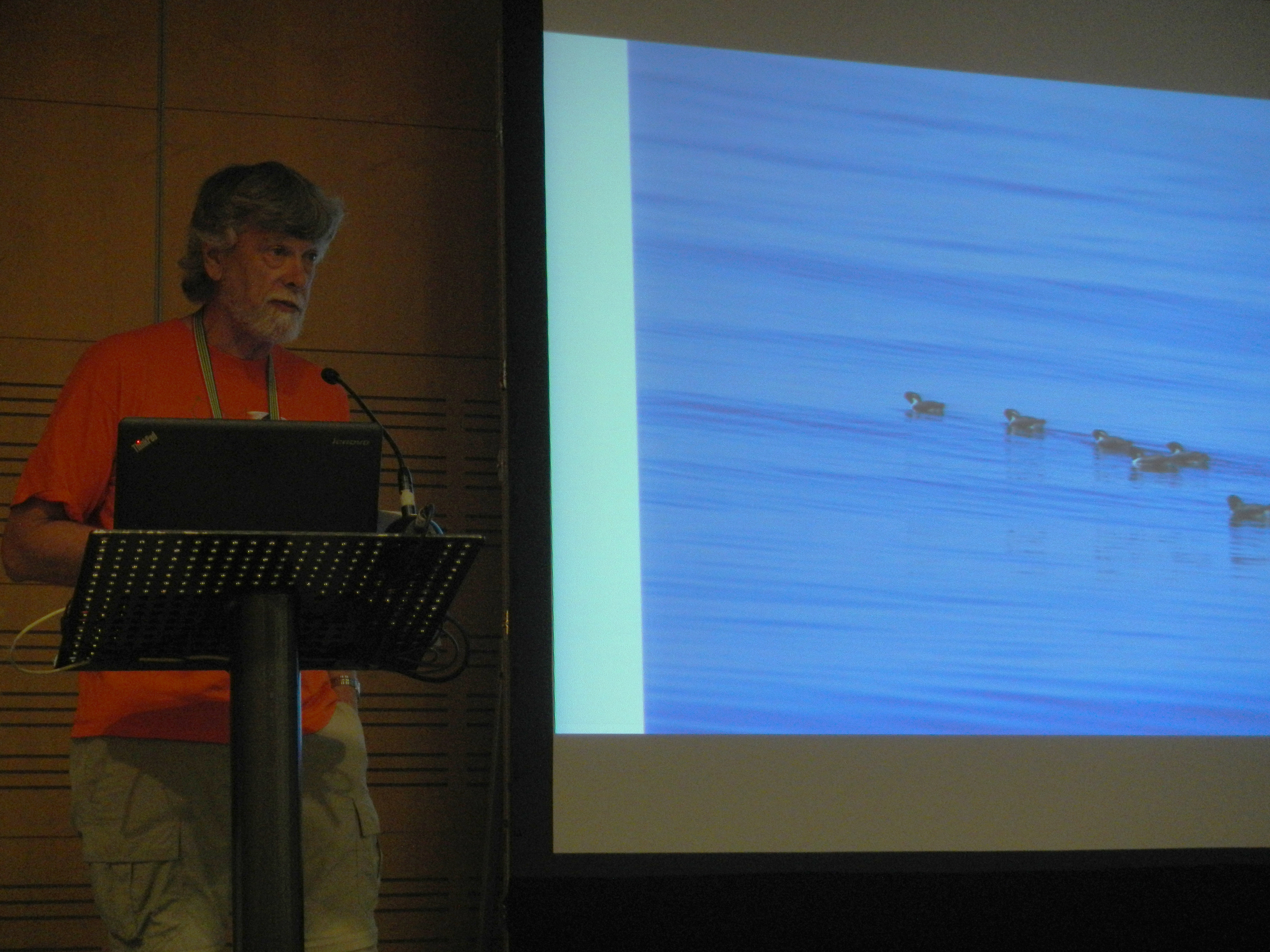
A great video by the World Seabird Conference highlighting some of the amazing seabird research going on around the world. Keith is near the end!
Days 3 and 4 at the World Seabird Conference
Hello again from Capetown. Day 3 was a big day for LBCS at the conference. Viv unveiled our poster in the morning and talked to many people through the day and at the reception in the evening. Keith did a 15 minute presentation to about 60 people as part of a 5 paper symposium entitled Community-Based Seabird Conservationand then joined a follow-up Discussion Workshop with about 15 people on this subject. It is pretty clear from both the responses to the poster and from the feedback following the presentation that LBCS is pioneering a program of community participation that is not yet common in the world, but that is increasingly seen as a model for an approach to island restoration and seabird conservation that increasingly needs to be adopted by the research and scientific communities in other parts of the world. We received praise from numerous people from different parts of the world and quite a few expressions of interest in our volunteer and internship programs. It was a fun day.
We actually met up with 4 different people who were, years ago, volunteers on Limestone, and who are now researchers working in different institutions in Canada and Europe. It was really rewarding to talk with them. We also talked with Ken Summers who did the first ANMU survey on East Limestone back in 1971 and CWS biologists and university profs who knew about what we do.
Friday featured some really good sessions on programs to eradicate invasive predators and restore seabird colonies and on the new global approaches to funding these programs. Many of the seabird populations in the world are in serious decline and in serious trouble, and seabirds dominate the IUCN red lists of threatened and endangered species – this as a consequence of many factors, but primarily invasive predators, over fishing of seabird food stocks, fisheries by-catch of seabirds in nets and on long-lines, and global warming. But the good news on Friday is that there are now quite a number of successes in eradicating various introduced predators and restoring and expanding seabird populations on over 1000 islands around the world. Islands Conservation is a big player in this around the world, and they mentioned LBCS a couple of time in presentations. In addition, there are many innovations to address the fishing issues, usually involving communities and fishermen. So all of these new approaches involve serious engagement with local communities, and there has been some significant change in the approach of researchers and scientists, even since the first WSC in Victoria in 2010.
Attending this conference has been a great experience for Keith and Viv. We have met and shared ideas with many people, and we are preparing ideas to share with LBCS directors and the community, and preparing for a strategy session in February 2016. We are already following up with some of the people we met.
